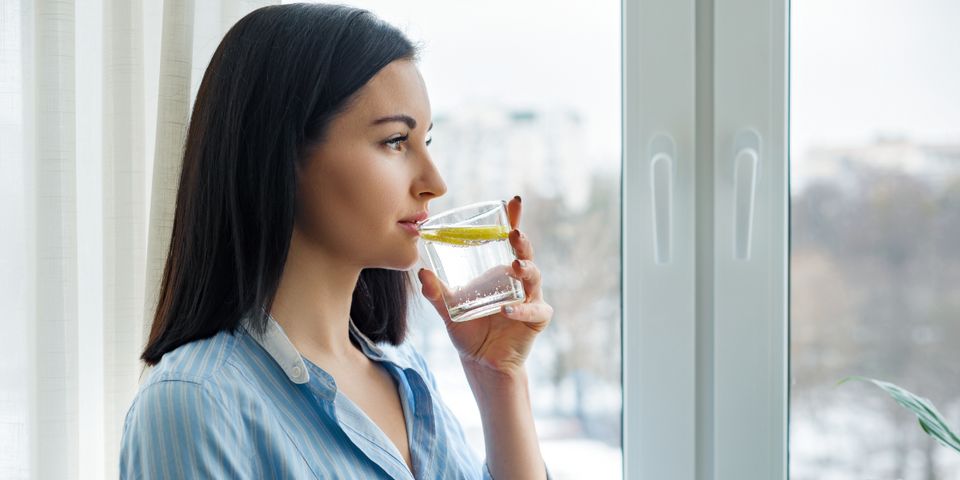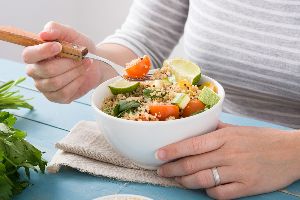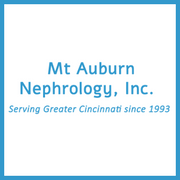The Dietary Do's and Don'ts While Passing Kidney Stones

Passing kidney stones is usually an extremely painful experience, one that some people compare to giving birth. Because your urinary tract was not designed to pass solids, stones that form in the kidneys can get stuck in one of the ureters, the bladder, or the urethra, causing intense discomfort. Although larger stones may require medical intervention, in most cases, they pass on their own within a few days. Eating and drinking certain foods—and avoiding others—can help with this process and reduce discomfort in the process.
Do:
Drink plenty of water.
Staying hydrated not only helps prevent kidney stones from forming by diluting waste, it can also help you pass a stone more quickly. The more water you drink, the more you need to urinate, which can help move a painful stone and provide relief. To help prevent kidney stones from forming, try to drink at least 2.5 liters, or 10 cups, of water per day. This will help you stay hydrated and prevent the buildup of calcium or uric acid in the kidneys that can lead to stones.
Enjoy plenty of citrus.
Citrus fruits, like oranges, lemons, limes, and grapefruit, contain citrate. Citrate naturally blocks calcium from forming into stones. If you have uric acid stones, caused by excess acid in urine, citrate can help neutralize the acid to prevent kidney stones from forming or help dissolve existing stones. One easy way to increase your intake is to add lemon or lime to your water. Aim to get a half cup of lemon or lime juice each day for the most benefit.
Don't:
Consume too much salt.

The more sodium in your urine, the greater your risk for kidney stones. As a general rule, you should consume no more than 2,000 mg of sodium each day, so pay attention to the salt content in what you eat. Too much salt is also dehydrating, so if you have kidney stones, reduce your intake to ensure you produce enough urine to pass them.
Eat too much meat.
People with kidney stones should significantly reduce their meat intake, and even consider switching to a plant-based or mostly plant-based diet. Animal proteins can make your urine more acidic, which encourages stones to form, and reduces levels of neutralizing citrate. Choose protein alternatives like quinoa, tofu, Greek yogurt, and beans instead. If you don't want to cut out animal protein altogether, choose lean cuts of meat and limit your consumption to no more than three ounces per meal.
If you have painful kidney stones, see one of the specialists at Mt Auburn Nephrology for help. Patients from throughout the Cincinnati, OH area rely on this full-service nephrology clinic for comprehensive treatment for a a wide range of kidney diseases. To learn more about their team and the services offered at this practice, visit them online or make an appointment by calling (513) 841-0222.
About the Business
Have a question? Ask the experts!
Send your question

